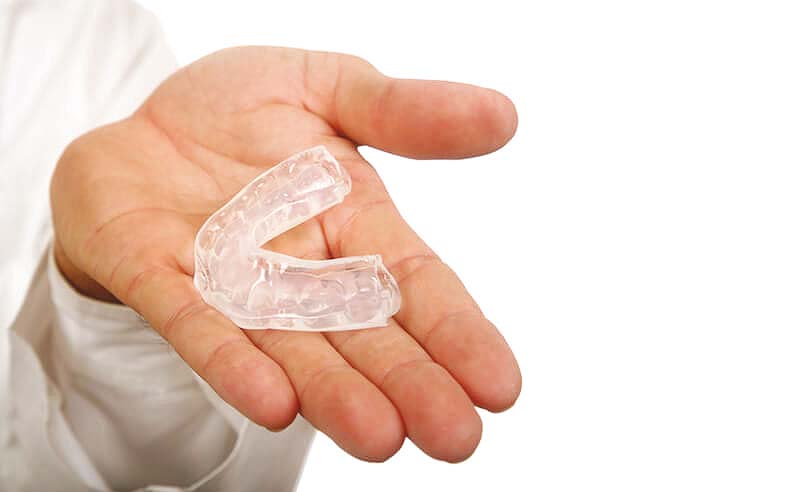
You brush too hard

We know you want a million watt smile, but applying too much pressure or brushing too harshly can actually lead to more problems and discomfort. “Doing this wears away at the actual tooth structure, and causes the recession of gums that normally covers the root of the tooth,” says Ira Handschuh, dentist at the Dental Design Centre in White Plains, New York. You may notice extreme sensitivity to eating and drinking cold items, which is due to your root structure being more exposed. While you can’t “undo” the damage caused by over-brushing, you can schedule an appointment with your dentist, who can place tooth-coloured fillings on the areas where the tooth has abraded, recommends Handschuh. “Sometimes even placing a gum graft to build the gums back to the height they were originally is also possible,” he says. Your best bet is to avoid this fate altogether by investing in a high quality electronic toothbrush or a manual extra-soft bristled brush, and tone down the pressure.
7 habits for a healthy 80-year-old you
You’ve experienced tooth trauma
You might be thinking that if this were the case, you’d know right away, but surprisingly, tooth trauma can be the result of an incident that happened many years ago. “This can entail anything from falling and hitting the teeth, being in a car accident where there’s a direct force to the mouth or jaw, or even chewing on some type of food that traumatises the tooth,” says Handschuh. Along with tooth trauma comes increased pain and sensitivity when chewing, which causes the tooth to flex and irritates the nerve endings within the tooth. “If a patient were to fall and damage a tooth, their dentist would need to keep watch on that tooth with regular follow-ups and X-rays to make sure there’s no infection and also that the nerve inside the tooth is not dying,” says Melissa Thompson, a Massachusetts-based dentist. If the tooth has died as a result of trauma, signs would include tooth discolouration and temperature sensitivity.
You have a severe sinus infection

Especially during allergy and flu season in winter, a sinus infection may sneak up on you in a way that doesn’t even feel like a normal one. “Since the roots of certain teeth actually sit right by the sinuses, the pressure from a sinus infection actually mirrors tooth pain,” says Handschuh. “Instead of dental treatment, one would need medication like a decongestant and possible antibiotic prescribed by their family physician.” If you’re cavity-free and your tooth or teeth have been bothering you, then your flu might be to blame. If the pain doesn’t subside in a couple days, post recovery from flu, head to the dentist ASAP.
You have a cracked tooth
This is more common than you think — a cracked tooth can be caused by a number of things, including biting into something hard that causes the tooth to crack (think ice or hard candy), an injury from something outside the mouth, like falling or an accident. “If there is a crack, the tooth pain could be experienced when biting down, chewing, or even drinking something hot or cold,” says Thompson. If the crack is to one of your front teeth, you may be able to actually see the damage, but if it is to the back teeth, visibility might be more difficult. Visit your dentist’s office right away so they can restore the area before the crack worsens. Also, immediately stop chewing on anything hard to avoid further damage.
You grind or clench your teeth while sleeping

Grinding teeth causes more than just annoyance to your spouse. “In some cases, chronic teeth grinding can result in a fractured or loose tooth,” says Handschuh. “So it’s very important to have your teeth evaluated by your dentist so he or she can examine the way your teeth occlude, and consider whether or not any of them are hitting too hard or too early.” An imbalance in where your teeth meet is what can cause problems like tooth, TMJ and muscle aches. “There are many ways to treat this type of pain, one of which might be the use of a night guard, which assists in removing forces off of some teeth and placing the forces evenly throughout the oral cavity,” he suggests.
Published in The Express Tribune, March 3rd, 2016.
Like Life & Style on Facebook, follow @ETLifeandStyle on Twitter for the latest in fashion, gossip and entertainment.

1732530816-0/BeFunky-collage-(88)1732530816-0-165x106.webp)
1720848500-0/Eminem-and-his-daugher-Hallie-(1)1720848500-0-165x106.webp)














COMMENTS
Comments are moderated and generally will be posted if they are on-topic and not abusive.
For more information, please see our Comments FAQ